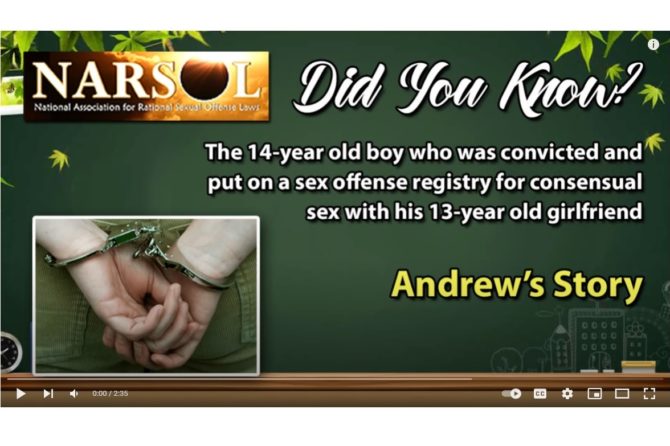At least 27 states and one territory require that juveniles must register if they commit a sex offense for which an adult in the same jurisdiction would be required to register. 37 states reserve registration for juveniles convicted of specific qualifying offenses. It is difficult to know exactly how many children have been placed on sex offender registries nationwide, however. Studies regarding children on the sex offender registry are relatively rare, and the states typically do not track information regarding the ages of offenders when they were added to the registry.
Human Rights Watch attempted to obtain this information from each of the 50 states, but only two responded – and those with aggregate counts only. According to the U.S. Department of Justice, juvenile sex offenders comprise 25.8% of all sex offenders and 35.6% of sex offenders against juvenile victims. They estimate that in 2004 there were 89,000 juvenile sex offenders known to police.
Consider what kind of life your child would have if, because of sex offender restrictions, he couldn’t attend school, go to a park or swimming pool, or have a birthday party because other children will be there. Some states simultaneously have laws requiring minors to attend school while at the same time forbidding sex offenders from being anywhere near a school. 44% of sex offenders overall (and presumably juvenile sex offenders, as well) are unable to live with their supportive families due to residency restrictions. Many are forced into foster care, even as bills have been introduced to bar juvenile sex offenders from foster homes and other communal youth facilities.
NARSOL: https://narsol.org
NARSOL Resources: https://resources.narsol.org
Join NARSOL: https://secure.narsol.org/join-narsol/
Volunteer: https://narsol.org/volunteer/
Support NARSOL with Amazon Smile: https://smile.amazon.com/ch/47-3285181







